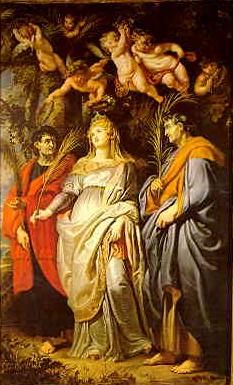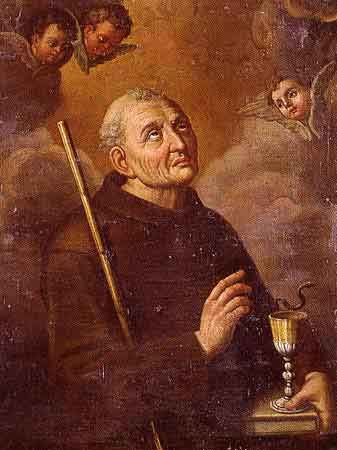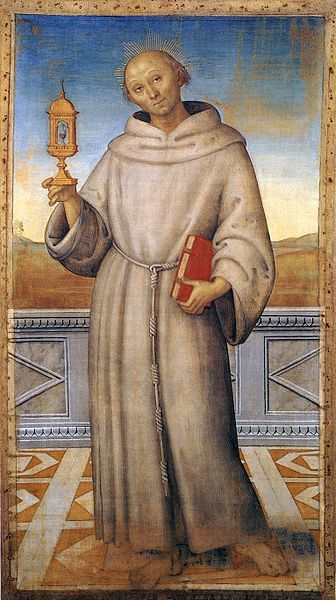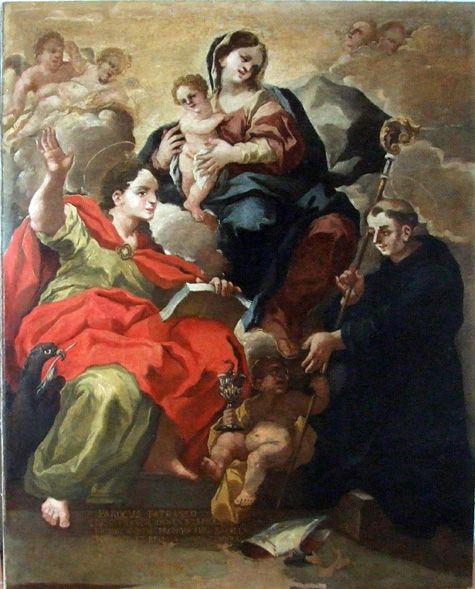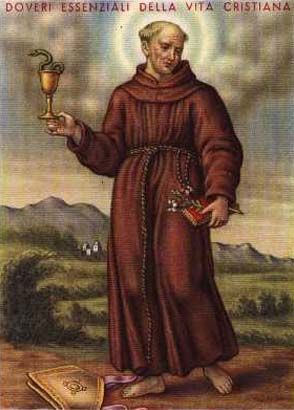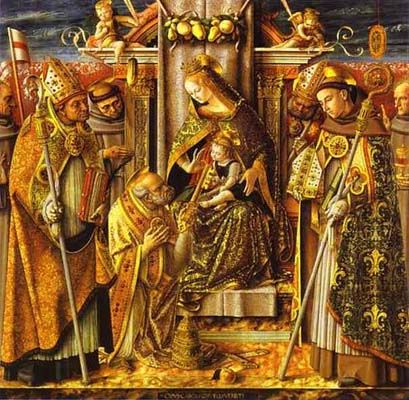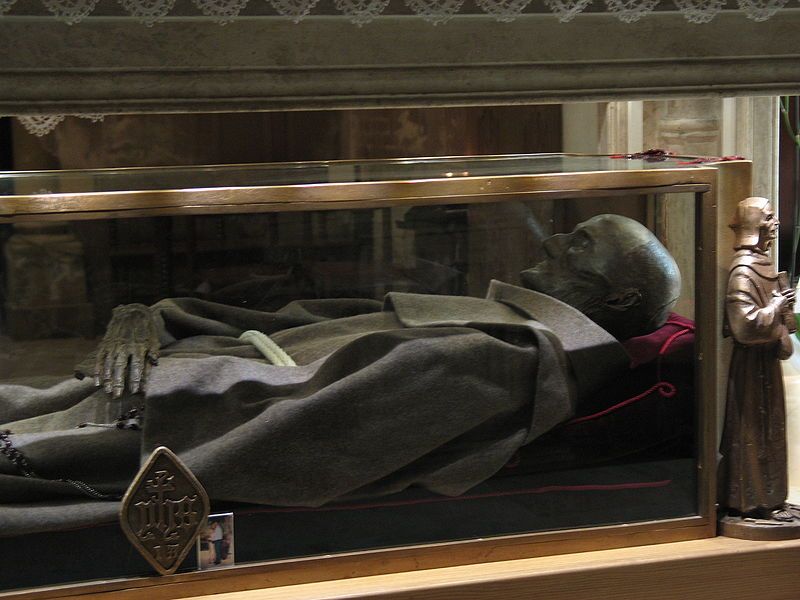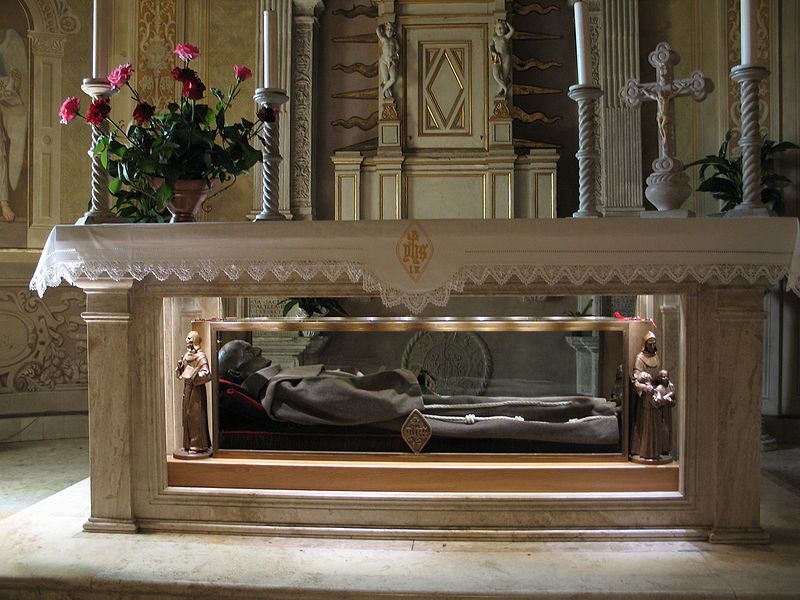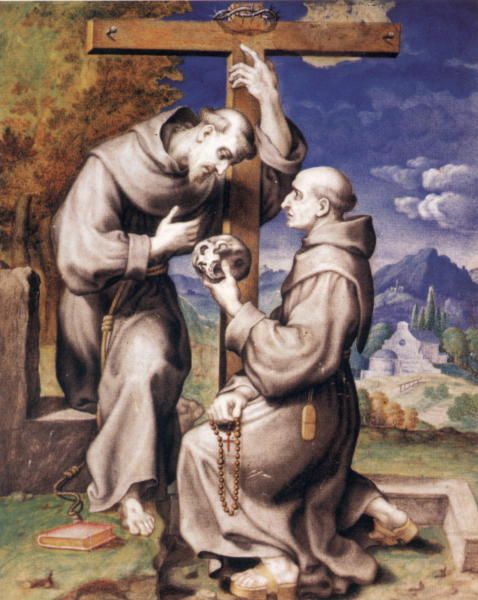Today, May 12, we celebrate the feast day and martyrdom of
Saint Flavia Domatilla (1st century). This brave woman was martyred by Emperor Domitian during the
beginnings of Christian persecution and execution throughout the Roman
empire. Her bravery in proclaiming the
Gospel reminds us today, centuries later, of the importance of living the Word
courageously and publicly.
Flavia Domatilla was a Roman noble lay woman, related to
some of the most powerful families and rulers in the empire. She was the grand-daughter of Emperor
Vespasian and the niece of Emperors Titus and Domitian, the latter of whom was
in power during her lifetime. Flavia
further was married to Titus Flavius Clemens, a Roman consul, and nephew of
Vespasian.
Flavia was the leader of her household. She and her husband
converted to Christianity, as did the members of her household. Given his station and role, it was not long
before her husband was discovered, and publicly executed. Upon the martyrdom of her holy husband,
Flavia was banished to the island of Pandataria in the Tyrrhenian Sea. It is reported, although records are
unreliable, that she returned from her exile, proclaiming the faith, and was
burnt to death for refusing to sacrifice to the pagan gods along with two
foster sisters who had remained behind.
It is more likely, however, that she lived a brief life in exile,
mourning her husband, and dying from exposure to the elements. Hers is considered a slow martyrdom for the
faith.
Roman literature
recounts Saint Domitilla’s fate, as Dio reports:
Domitian slew, along with many others, Flavius Clemens the
consul, although he was a cousin and married to Flavia Domitilla, who was also
a relative of the emperor's. The charge brought against them both was that of
atheism (αθεοτση), a charge on which many others who drifted into Jewish ways
were condemned. Some of these were put to death, and the rest were at least
deprived of their property. Domitilla was merely banished to Pandateria
(Ventotene).
It should be noted that in this case, “atheism” implies
Christianity.
Flavia’s niece, also called Domitilla, was also exiled to
the island of Terracina, with the members of her household, Saints Nereus andAchilleus who had previously served Emperor Trajan. They, too, were martyred
for their faith.
The facts of Saint Flavia’s life are unclear, although what
remains central is the role of her faith in her eventual demise, and that of
her husband and family. We pray today
for all those who continue to suffer for the faith, experience persecution, and
die for their beliefs. May their
courage be inspiration to each of us.
Prayer for Fortitude
Dear Jesus, lay your Wounded Hand upon my weary head,
And teach me to have courage in the paths that I must tread.
Bless me, and bless those whom I love, and give us grace to
see
These crosses bravely borne by us will keep us close to
thee.
And if at times a shadow falls in unexpected ways,
Put your gentle hand in mine and guide me through the days.
So bless my people, one and all, with Thy protecting grace,
And impart to them Thy wisdom ere they meet Thee face to
face. Amen.









